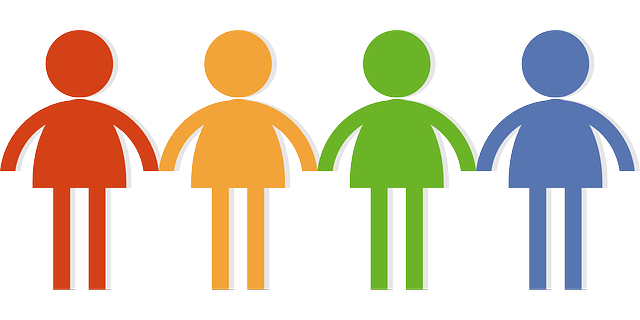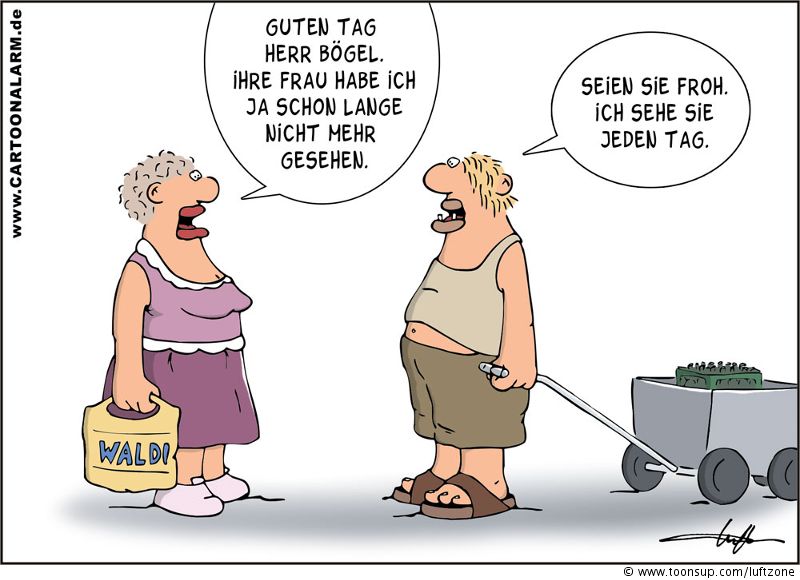You have just learned that there is a noun gender in German (for example DER Mann, DIE Frau, DAS Kind) and that you have to learn them mostly by heart (although there are some rules that could help you determine the noun gender in German). However, the teacher now wants to ruin your good will to learn German by mentioning the noun plural in German (for example: der Mann – die MÄNNER; die Frau – die FRAUEN; das Kind – die KINDER). Don’t be mad at your teacher, because in order to have all important information about some German noun you will have to learn both their gender and plural form, otherwise you won’t be able to use nouns properly: DER Mann mit dem Hund lächelt mir zu; zwei andere MÄNNER sitzen im Cafe und trinken Kaffee. As you can see, we need those pieces of information.
“There are NO endlessly many noun plural forms in German”
Once you start learning plural of every new German noun that you learn, you will most probably start asking yourself if there is some scheme or some rules which could simplify the learning process. The answer is affirmative, there are NO endlessly many noun plural forms that could appear in German. Actually there are some 5 groups of endings, take a look at the following list:

“There are rules which simplify the learning process”
1. -E:
1.1. most of the masculine (89 %) and neuter nouns: der Tag – die Tage (day – days); das Telefon – die Telefone (telephone – telephones). In order to make things easier, I will write only endings (and stem vowel umlauts) instead of the whole plural form: der Tag, e; das Telefon, e.
1.2. masculine nouns mostly take Umlaut (when there is a stem-vowel a, o, u): der Stuhl, ü-e (chairs); der Koch, ö-e (cooks); *but: der Hund, e (no Umlaut) (dogs).
1.3. masculine nouns which end with -eur; -ich; -ier; -ig; -ling; -or: der Ingenieur, e; der Rettich, e (radishes); der Käfig, e (cages); der Lehrling, e (trainees); der Frisör, e (hairdressers).
1.4. many single-syllable feminine nouns (around 75 % of all feminine nouns, they always take the Umlaut): die Hand, ä-e (hands).
1.5. feminine nouns which end with -nis or -sal: die Kenntnis, se (skills).
Would you like more of German Grammar?
2. -(E)N:
2.1. most of the feminine nouns (mostly those which end with -e), many foreing words, all masculine nouns which end with -e, -ent, -and, -ant, -ist, -or; some other masculine nouns; a small number of neuter nouns: die Lampe, n (lamps); die Uhr, en (watches); der Deutsche, n (male Germans); der Student, -en (students); der Staat, en (states); das Bett, en (beds).
2.2. feminine nouns which end with -ion, -ik, -heit, -keit, -schaft, -tät, -ung: die Nation, en; die Fabrik, en; die Freundschaft, en (friendships); die Universität, en; die Bedeutung, en (meanings).
2.3. feminine nouns which end with -er, -el: die Regel, n (rules); die Leiter, n (ladders). *exceptions: die Mutter, ü-/ (mothers), die Tochter, ö-/ (daughters).
2.4. feminine nouns which end with -in: die Lehrerin, nen (female teachers); die Freundin, nen (female friends) (they always get the ending -nen in plural).
2.5. foreign words that end with -ma; -um; -us ->>> these endings are replaced with -en: das Thema – die Themen; das Museum -die Museen.

3. / (no ending):
3.1. masculine and neuter nouns which end with -el, -en, -er (they get the Umlaut when possible): der Stecker, / (plugs); das Messer, / (knives); der Apfel, Ä-/ (apples), der Garten, ä-/ (gardens).
3.2. neuter nouns which end with -chen, -lein (the so called diminutives): das Mädchen, / (girls); das Häuschen, / (little houses); das Tischlein, / (little tables).
3.3. all neuter nouns that begin with Ge-: das Gebäude, / (buildings).
4. -ER:
4.1. Note: feminine nouns never get the ending -er.
4.2. many single-syllable neuter nouns and rarely some masculine nouns: das Bild, -er (pictures); der Geist, er (ghosts, spirits).
4.3. these words always get Umlaut when possible: das Buch, ü-er (books); der Mann, ä-er (men); der Mund, ü-er (mouths).
5. -S:
5.1. nouns which end with -a; -i; -o, -u; abbreviations and foreign words that have been taken from English and French: der Opa, s (grandpas); das Foto, s (photos); der Lkw, s (trucks); das Team, s. *Exceptions: das Thema, die Themen; die Firma, die Firmen
6. Note:
Some nouns have only the plural form (pluralia tantum): die Leute (people), die Eltern (parents), die Ferien (vacation).
If you are still a beginner or an advanced learner who would like to check if the plural form that you know is correct, you can either use any of free online dictionaries or this specialised web page for the German plural (all you have to do is to type the word(s) in a box and press the Go button and the plural form will appear).





